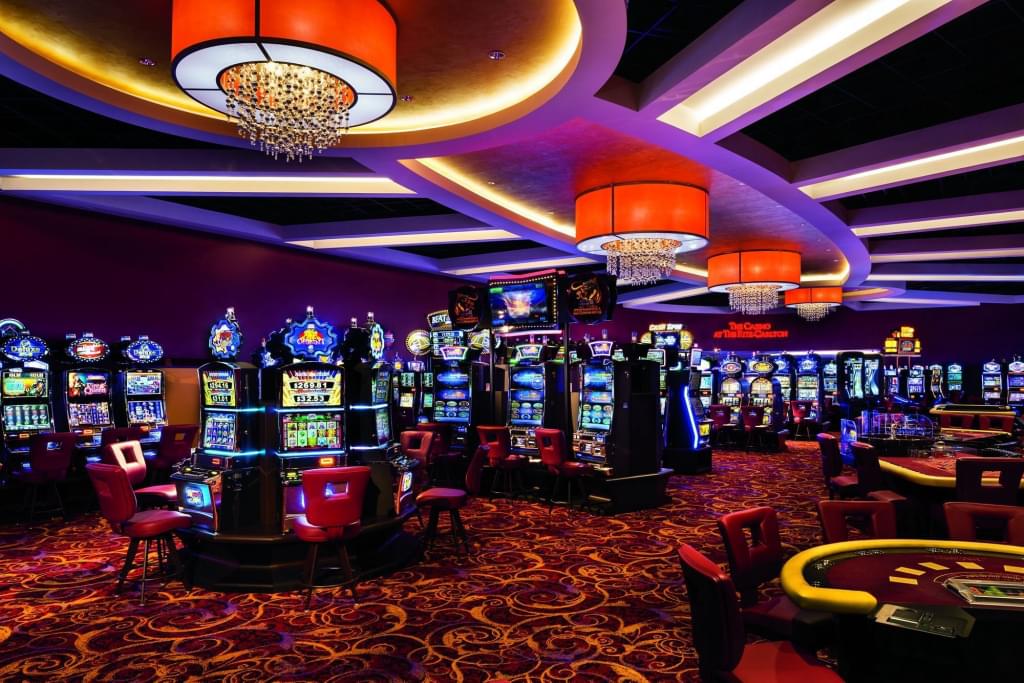Southeast Asian countries show consistently high economic performance and are popular tourist destinations due to world-class resorts. Year by year, the ASEAN Association attracts more gambling enthusiasts and has every chance to become a new center of global gambling.
Muhammad Cohen, a former U.S. diplomat, author of the novel "Hong Kong On Air," and the Chief Editor of IGaming Business Asia, who has been covering the gaming business in Asia since 2006, holds this view.
The Chinese word for "crisis" comprises characters that signify both danger and opportunity. Now that COVID-19-related restrictions have lifted and Asia's gaming industry has emerged from the crisis, the ASEAN Association faces significant opportunities in regional gambling. This, in turn, poses a major competitive threat to popular casino destinations, primarily Macau.

The Southeast Asian Economic Phenomenon
Daniel Cheng, a veteran of the gaming industry and author of the bestseller "Japan Casino Uprising," also forecasts progressive economic development for the ASEAN bloc. He believes that the Southeast Asian group of ten countries will surpass Japan in this decade in economic power and will be second only to the U.S., China, and the European Union.
The Association of Southeast Asian Nations includes Brunei, Cambodia, Indonesia, Laos, Malaysia, Myanmar, the Philippines, Singapore, Thailand, and Vietnam, with a population exceeding 660 million. Currently, the collective GDP of these countries surpasses $3.3 trillion USD (2.7 trillion GBP / 3.1 trillion EUR), ranking fifth in the world, just after India, and the GDP of ASEAN is 50% higher than that of Canada or Brazil.
According to the Association's annual report published in July, the bloc's economy grew by 5.2% last year and is forecasted to grow by 4.7% this year and 5% in 2024.

Growing East Asian ASEAN Markets
In an email to iGB magazine, Daniel Cheng highlights the progressing economy of the Southeast Asian countries and provides compelling statistics:
- Indonesia, with the world's fourth-largest population, has a GDP nearly three times that of Singapore. Indonesia's tourist flow is approaching that of China, both in terms of foreign tourists and Indonesian travels to Singapore.
- Thailand, with a population of over 70 million, has a more powerful economy than Singapore.
- Vietnam, benefiting from warming relations with the U.S., is experiencing growth in wealth and population (approx. 100 million).
- Malaysia, a financially prosperous Southeast Asian state, is home to the region's first integrated resort – the recently modernized Resorts World Genting.
- Singapore, an economically thriving country, is one of the world's richest per capita and has the most advantageous tax system on the planet. Singapore's share of global gambling revenue has already exceeded pre-COVID levels.
- The Philippines, the most dynamic player in the region, is poised to surpass Singapore in gross gambling revenue this year. According to estimates by GCG Gaming Advisory Services, the Philippines' total revenue by the end of 2023 could reach $5.9 billion USD, two-thirds of which will come from the Entertainment City in Manila.
Blossoming Casino-Resort Scene in SEA
Recently, there has been a surge in the opening of new casino resorts across the Philippine archipelago. The coastal areas of Southeast Asia are rapidly developing with hotel complexes:

- Bloomberry Corporation announces the opening of the Solaire Resort North casino complex in Quezon City in 2024, followed by a resort in the south in Cavite, accessible by metro from Manila.
- NuSTAR is constructing two tourism complexes in Cebu, the country's second-largest region, featuring five-star hotels, luxury shops, and MICE centers.
- In Clark, a "weekend resort" two hours north of Manila with its own international airport, six new or recently renovated casinos operate.
- Hann Casino Resorts launched the region's first integrated resort in 2021, based on its long-running Widus casino and plans a multi-billion dollar expansion project including luxury hotels, golf courses, and villas.
- Rival D'Heights is expanding its residences and hotels.
Phu Quoc Island, a Vietnamese resort, allows entry to its casino without a foreign passport. In June 2020, a billion-dollar project was launched along the famous central Vietnamese coast in Hoi An. Early last year, Ho Tram opened its second spa hotel in the south of the country.
Betting on Thailand
The legalization of casinos in Thailand has been gaining momentum in recent years.
The Hard Rock franchise, with its hotels and cafes in Thailand, is actively interacting with officials and negotiating for collaboration in gaming services. According to David Leppo, CEO of Footballbet, which entered the Southeast Asian gaming market in 2011, many international casino operators, local hotel groups, and developers are just waiting for their moment, as tens of thousands of Thais cross the border with Cambodia and Laos daily to gamble.

Philippine Offshore Gaming Operators (POGOs) Boost Their Own Gaming Market Rating
The Philippines, the only ASEAN country allowing its citizens unrestricted casino access, contributes to the growth of its gaming business, along with niche Korean and, to a lesser extent, Japanese tourist flows.
Currently, the Philippines is the only regulated online market in all of Asia, asserts David Leppo.
The retail market is recovering, and the internet market has strengthened over the last four years due to Covid-19. Besides the strengthening of the POGO sector, there is an expansion of domestic online gaming.
In conclusion, Southeast Asia has the potential not only for a solo expansion in the international gambling sector but at the very least can claim the title of one of the largest players in the global gambling market.









